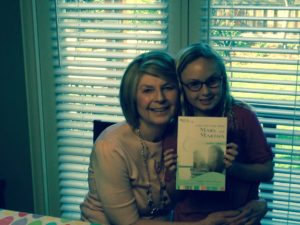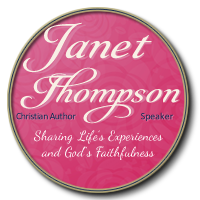The first time I heard “organic” used in the same sentence with “mentoring” in the church, I was curious and cautious. I wondered: Say what? How’s that working for you? How many women in your church connect “organically” into a mentoring relationship and how does the word “organic” apply in the church?
[Tweet “How many women in your church connect “organically” into a mentoring relationship “]
Synonyms for “organic” in Roget’s Super Thesaurus are: inherent, intrinsic, innate, native, natural—untouched by man. So using the term “organic” for mentoring implies that mentoring relationships will just happen naturally in the church with no outside help. Yet, when I do Woman to Woman Mentoring trainings on how to formally develop a mentoring ministry in your church and ask the audience how many see mentoring happening naturally in their churches—spiritually younger women asking spiritually older women to mentor them, or vice versa—they respond, negative.
What Does The Bible Say?
[Tweet ” the majority of women in churches do not naturally, or “organically,” live out Titus 2:3-5″]
Perhaps a few mentoring relationships do develop “organically,” but the majority of women in churches do not naturally, or “organically,” live out Titus 2:3-5, where we are instructed as Christian women to:
Teach the older women to be reverent in the way they live, not to be slanderers or addicted to much wine, but to teach what is good. Then they can urge the younger women to love their husbands and children, to be self-controlled and pure, to be busy at home, to be kind, and to be subject to their husbands, so that no one will malign the word of God.
I am sure that Paul, the author of the Book of Titus, expected that women would naturally follow his admonition, and maybe they did in that day, but today, by their own admission, most women don’t have the desire, energy, interest, or feel they have the time to apply these Scriptures “organically.” Common concerns are thinking that they don’t know enough to mentor and fear of rejection.
My passion is to help women understand the biblical mandate in Titus 2:3-5 to mentor each other and to cultivate a culture of mentoring in our churches. But this takes work—for the women’s ministry director and the women she shepherds. In today’s culture, our inherent, intrinsic, innate, natural,—organic if you will—bent is to take care of our own needs and those of our immediate families.
Organic Takes Effort
Organic certainly has a place in gardening, and my husband and I have striven to eat organically produced foods since my first diagnosis of breast cancer twelve years ago. But “man” touches organic gardens; they don’t just happen naturally or innately. Organic produce takes time, energy, and effort to grow and cultivate without chemicals, and hence, the higher price in the market. Organic gardens don’t sprout up and grow inherently or intrinsically—they need an overseer, someone who plants the seeds, waters, weeds, watches over them to make sure bugs and weather don’t destroy, harvests, nurtures, and cares for the garden.
[Tweet “Very few ministries take place organically in a church”]
And here’s my point: so do mentoring relationships and mentoring ministries. Very few ministries take place organically in a church—the music ministry doesn’t organically come together Sunday morning to lead worship without practice, leading, and direction. Children’s programs don’t just spring up organically on Sunday morning without preparation, planning, and supervision. The pastor doesn’t get up in the pulpit and preach whatever organically comes to his mind that morning—he has put in research, energy, effort, planning and study time to prepare his message. People don’t organically become Christians—our natural or native selves are sinful and we must intentionally be born-again.
Rather than using the buzzword “organic,” I propose we think intentional. Intentionally cultivate Titus 2:3-5 in your church, and nurture One generation will commend your works to another, they will tell of your might acts” Psalm 145:4. Help the women learn how to share intentionally their life experiences and God’s faithfulness and help connect and nurture them in mentoring relationships. I guarantee the women in your churches will be “organically” blessed when you have an intentional mentoring ministry—as expressed in this email I received recently from a mentee:
Hi Janet,
About 15 years ago, I attended a Woman to Woman mentoring coffee at Saddleback Church and was matched into a mentoring relationship with Ellie Swain. I just wanted you to know what a blessing that was. I moved to Arizona, and Ellie moved to Arkansas, but we visit each other and talk on the phone nearly every week to encourage each other in our walk with Jesus.
Janet, you made a difference in our lives. Thank you!










I agree with you, Janet. Organic does seem out of place with mentoring. I like your idea of intentional much better. There is no harvest without effort and care. Great post, sweetie!
Thank you Lynn and thanks for leaving a comment. As the Bible says…the harvest is plenty but the workers are few. It does take work to be intentional about mentoring but the blessings are in the multitudes!
LOVE this post, Janet! I actually use the term ‘organic mentoring’ because organic refers to the relationship. While mentoring predominantly must be very intentionally.
I believe natural, already established relationships are the best foundation for mentoring. They don’t undergo that awkward ‘get-to-know-you’ stage.
I witnessed organic mentoring much more on the mission field than I have here in the states because we have a very isolated, individualistic culture.
The kind of mentoring that takes place in a home where a young woman sits with her mother and grandmother at the table while they peel potatoes together and talk about how God is working in their lives and how they have struggled with something in their marriage or in life and seen God give them victory through it…or when they prayed together while their family member was ill and God showed up and brought healing…or comforted them in loss.
But I also talked to a young girl the other day who grandfather had mentored her and he never even knew it. She talked about how he would send them off by praying with them at the car and how she heard him pray in his room for each of the kids and so many other things he did ‘naturally’ and that left a legacy of faith for her to follow.
So, I think that when we talk about relationships, the organic ones are the easiest ones in which mentoring takes place.
But when we talk about mentoring, the majority of it must take place intentionally. Especially when we add the word MINISTRY in there. Mentoring requires intentionality. Even in an organic relationship, if I am going to teach a close friend about God’s faithfulness, I must be intentional about how I do it. She may witness me praying and hear me talk about Jesus, but I must be willing to be intentional about taking it further.
I think some people have used the term ‘organic’ as an excuse to be far too laid back in their approach to mentoring individually and as a ministry.
So, for me, “Organic Mentoring” looks something like this:
Organic = Natural relationships (ideal for mentoring, not always possible)
Mentoring = Seldom organic, almost always must be intentional
Organic Mentoring Ministry = Impossible. Mentoring ministries aren’t organic. They are always intentional and require a lot of work. In the process of developing these ministries, some of the relationship connections may be organic, but the ministry must be intentional…as a whole and individually.
Hope that wasn’t as clear as mud, but that’s my 2 cents. 😉
AND… I absolutely LOVE this post because you brought out some very important aspects to mentoring. And I would much rather describe a mentoring ministry as INTENTIONAL than organic.
Thanks Stephanie and that’s why I pointed out that I don’t think “organic” works in the church on a global basis and is not effective for the majority of women in the church. You’re right, those that do form naturally are usually a personal relationship.
At Saddleback Church we often did match women who didn’t know each other. The women in the email I included in my post were strangers when they met and they became life-long friends even after both moved away. But we worked hard at helping them have a successful relationship.
You hit on a BIG point…providing intentional mentoring does take work, but rewards are tenfold!
We are starting a ministry of mentoring/discipling women in our local church–a church that is 30 years old, so it’s entirely new to and “old” church. From my experience in my home church and on the mission field for 24 years, discipleship should be planned and designed with homework. Since beginning this ministry, I’ve learned more about making it more relationship oriented and now the word “organic”. I guess I’m from that older generation (at 55 I don’t feel old!) that doesn’t understand how the younger ones want to go with the ebb and flow. Also, being somewhat introverted, if I have a plan to follow, I can talk about the things I think are important, but if I am just having a conversation, it’s harder to direct it. I have to say, I prefer your term “intentional”. We’ve been working on not having a “program” so much as helping women develop helping relationships. We started with prayer partners and just now are moving into the discipleship/mentoring phase. I’m learning much and trying to flex! Thanks for this post.
Hi Sharon,
One of the things I train in mentoring is that discipling and mentoring are not necessarily the same thing or interchangeable. Discipleship falls under the umbrella of the many areas mentoring can cover. Mentoring is Sharing Life’s Experiences and God’s Faithfulness in your life with another woman. Maybe she’s been a Christian for years, but she’s in a new season of life. Discipleship usually focuses on discipling new Christians but mentoring can be discipling OR more practical like being a new wife, mother, widow etc. I’m not sure if you looked around my website but I do talk more about this at http://womantowomanmentoring.com/mentoring/woman-to-woman-mentoring-ministry/ and I also have a resource to helps churches start a Woman to Woman Mentoring Ministry…not a program but a ministry. You can see that at http://womantowomanmentoring.com/publications/woman-to-woman-mentoring-resources/.
Mentoring is very relational and each mentee will need something different so there’s no one size fits all “program.” Even in discipleship there are different resources as you know to fit different needs and ages. I’m so pleased your church is seeing the need for implementing Titus 2:3-5! Your women and your church will be blessed.